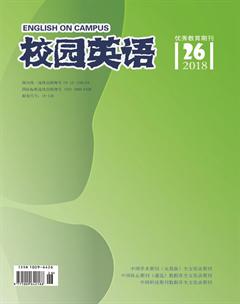How to Teach English words in County Schools
Liu Yan
Teachers Book (abbreviated to TB below) is very advisable for our teaching practice. But, as many of us work in county schools where teaching conditions are rather limited and the children have learned little English before, if we teach according to the Five-Step Teaching Mode (abbreviated to FSTM below) recommended in TB strictly, the teaching tasks would be difficult of accomplishment in a fixed time. Also, if every class uses the same FSTM, all the classes would become monotonous. This is common experience of many English teachers in county schools.
During my early teaching practice, I noticed this problem and found that, in every class, the time we spent in teaching new words is much more than the time planned in TB, so I believe that it is the word-teaching which affects our teaching efficiency. Then, how to teach English words in county schools? The method I have taken is the one that combines the old and the new, thats to say, teach all the new words of one unit in only one class with the traditional teaching method, then use the FSTM one lesson by one lesson according to TB. It is the goals of the lesson and the interest of the students which I pay more attention to during my teaching practice.
First, about the goals. The key to learn English words from the beginning is to foster the students ability to read and spell out a word according to its phonetic symbol and the pronouncing rules of the letters and letter-groups. So, the first step of my word-teaching is to help the students bear something as knowledge of block in mind. For example, “yellow” and “know” can make the students know that “ow” is often pronounced as /?u/ and later the students can read and spell “show” and “ follow” easily.
A certain linguist has ever said that without grammar, a very little thing can be conveyed and without words, nothing can be conveyed. From these words, we can know how important the words are. Then, whats the way to remember words? In my opinion, one should remember words when the meaning of the words is known well after the words are used for several times. We can make the students listen, speak, read, write, and use the words to make sentences, substitute, translate, and so on. And, I also tell the students something about the parts of speech and word-building. For example, to learn the word “health”, I tell the students something about “healthy”. “Health” is a noun, but “healthy” is an adjective. The letter “y” makes a noun become an adjective. We should say “Health is important”, “Its good for ones health” and “keep in good health”. And we should also say that “keep healthy”, “be healthy” and “a healthy habit”. After such explanation, the students have much deeper impression. One basic principle that should be adhered to in Language-Learning is that pronunciation, spelling, parts of speech and meaning should be mentioned together every time. Thus, the teaching effect can be heightened for sure.
Second, the interest of the students. Word-learning, especially many words taught and remembered together is very dull. So, we should spend more time on the variety of teaching methods and try to find the one with which the students would learn the words more easily and bear them in mind for a longer time.
In order to do this better, I use some traditional and effective methods, such as educing the new from the old, scene description, developmental mode, etc. Because my students are shy, I often use games, including dragon games, guessing riddles, doing like the teacher does and “Who can write the most words” contest, and so on. For instance, after I teach the words about the school things, I ask several students to come to the blackboard respectively and tell the class which a ruler/a dictionary/an eraser/ a pencil box …is. Last, I point to the school things and ask them to say and spell out the words one by one. If he is wrong, the other students say “Wrong”, and the student who is wrong sits down. Then the one who stands up at last is the winner. Another example. When such a lesson is nearly over, I make the students remember the words for a few minutes, and then have a dictation. If a child can write all the words, even if he makes a few mistakes, I would award him with a paper-flower or a five- angle star in red. Thus, the class is not only lively and orderly, but the word-remembering is not dull any longer.
I have adopted the method above for several years and the result is really good. My students do well in word reading and word spelling. Also, the quality of FSTM is much better. Many of my colleagues ask me how to have the word-teaching, I think that all the words above are the answer.
References:
[1]Revision,Presentation,Drill,Practice and Consolidation.
[2]Sun Xiaomei,“Dialogue-teaching”,English Teaching and Research Notes,July 1999.
[3]Chen Wencan,“English Words”,English World,Nov.1998.
【作者簡介】Liu Yan, No. 7 Middle School of Luzhou in Sichuan.

